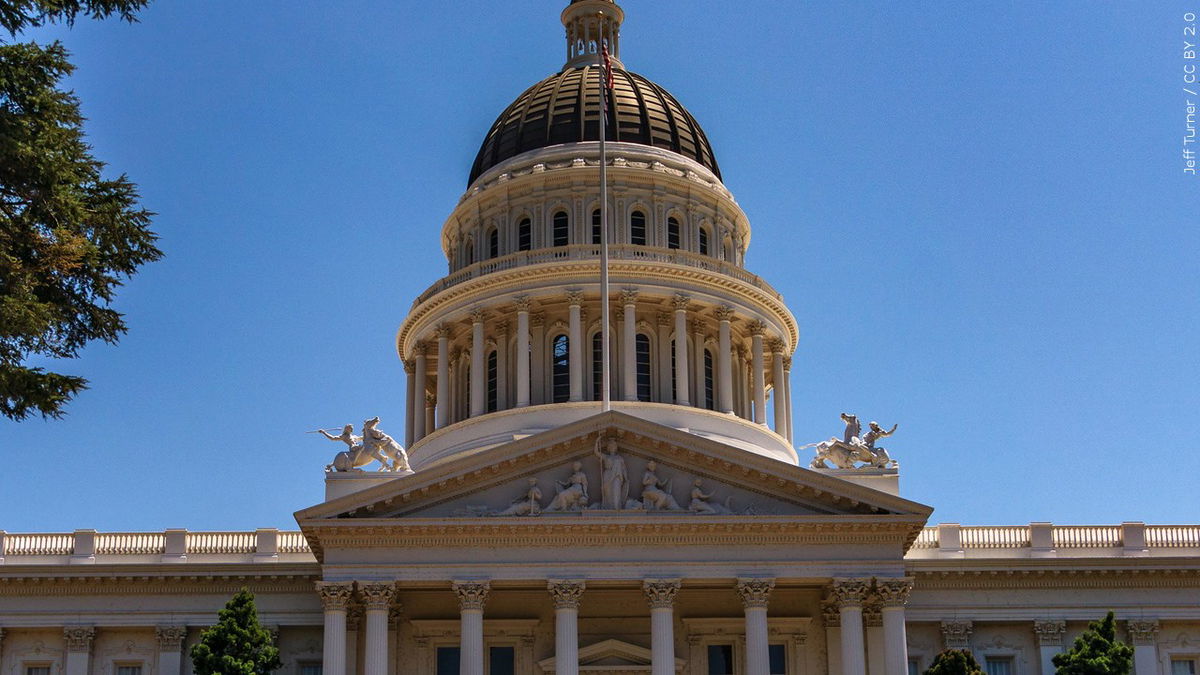California bill would allow public university admission priority for slaves’ descendants

Associated Press
SACRAMENTO, Calif. (AP) — A California lawmaker introduced a bill Monday to allow admission priority to the descendants of slaves at the University of California and California State University, two of the largest public university systems in the nation.
Assemblymember Isaac Bryan, a Democrat who represents parts of Los Angeles and authored the legislation, said it would help rectify past and current discrimination at universities.
“For decades universities gave preferential admission treatment to donors, and their family members, while others tied to legacies of harm were ignored and at times outright excluded,” Bryan told The Associated Press. “We have a moral responsibility to do all we can to right those wrongs.”
Lawmakers also convened a special session Monday to consider ways to protect the state’s progressive policies ahead of President-elect Donald Trump’s second term.
The incoming Trump administration is expected to make dismantling diversity, equity and inclusion programs a priority. A movement to limit so-called DEI initiatives at the college and state level gained momentum after the U.S. Supreme Court’s decision last year to outlaw affirmative action in college admissions, which created a new legal landscape around diversity programs in the workplace and civil society.
In California, voters approved a ballot measure in 1996 that banned the state from giving preferential treatment based on race, sex, ethnicity, color or national origin in public employment, education or contracting. The proposition, which outlawed affirmative action in public university admissions in the state, was upheld by voters in 2020. Bryant’s legislation would permit, but not mandate, preferential admissions treatment for the descendants of slaves.
Republican opponents of campus diversity programs say they are discriminatory and promote left-wing ideology. Trump has hinted at potential legislation to fine universities over diversity initiatives.
At the same time, legacy admissions, long seen as a perk for the white and wealthy at selective colleges, have come under fire in recent years following the Supreme Court’s ruling against affirmative action. By banning affirmative action but allowing legacy preferences, which favor the children of alumni and donors, critics say the court left admissions even more lopsided against students of color.
Bryan said he is hopeful for approval of the measure, which is in line with recommendations developed by members of California’s Black reparations task force.
“There is a growing understanding of California’s role in perpetuating the inequalities that arose from slavery, and there’s a willingness to try to rectify that harm, to heal that harm,” he said.
Black students made up about 4% of the California State University’s student population and about 4.7% at the University of California in 2023, according to the university systems’ latest reports.
The proposal follows reparations efforts at the state level that have yielded mixed results. Democratic Gov. Gavin Newsom signed a law in September to formally apologize for the state’s legacy of racism and discrimination against Black residents.
But state lawmakers blocked a bill that would have created an agency to administer reparations programs, and Newsom vetoed a proposal that would have helped Black families reclaim property that was seized unjustly by the government through eminent domain.
Earlier this month, California voters also rejected a ballot measure that would have amended the state constitution to ban forced prison labor, squashing another proposal championed by Bryan and other members of the California Legislative Black Caucus.
“When folks think about reparations, they think about just cash payments,” Bryan said. “But repairing the harm and the inequality that came from slavery and the policies thereafter is a much bigger process.”
Bryan said he also proposed the measure, which will have to go through a monthslong legislative approval process, in part to respond to Trump’s recent statements about paying “reparations” to white students that he said have been affected by diversity, equity and inclusion programs.
Georgetown University announced in 2016 that it would give preference in admissions to descendants of slaves owned by the Maryland Jesuits in a push to atone for the university profiting from the sale of enslaved people.
States including Kansas and Iowa passed laws banning DEI offices and initiatives in higher education, and Republican lawmakers in about two dozen states proposed at least 50 bills to restrict DEI programs last year.
Trump’s incoming deputy chief of policy will be his former adviser Stephen Miller, who leads a group called America First Legal that has aggressively challenged corporate DEI policies.
Trump, who has vowed to rid America’s schools of perceived “ wokeness,” also has plans to cut funding for schools that defy him on a multitude of issues on his first day in office, though even some of his supporters say he lacks the authority to make such swift and sweeping changes.
Trump has heaped scorn on the federal Department of Education, describing it as infiltrated by “radicals, zealots and Marxists.” He has picked Linda McMahon, a former wrestling executive, to lead the department.
But like many conservative politicians before him, Trump also has called for dismantling the department altogether, a cumbersome task that likely would require action from Congress.
___
Rodriguez reported from San Francisco.



